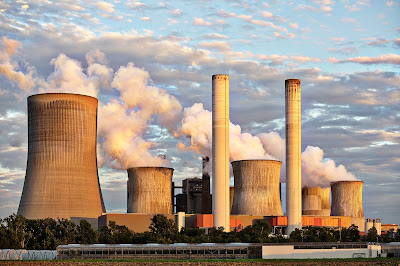Sometimes battle lines are clear-cut and easy to distinguish. Coal is bad for the environment (clean coal is like saying lite beer is good for your liver.) and solar panels and windmills are renewable energy forms that have a much lighter environmental footprint. That's good.
How about nuclear energy? Technically, it's renewable and clean, if you don't think about the waste and possibility of leaks. Two new nuclear reactors that are now under construction—Vogtle Units 3 and 4—in Georgia are expected to come online before 2023.
In the latest effort to revive the United States's flagging nuclear industry, the Department of Energy (DOE) is planning to build two new prototype nuclear reactors within seven years. These reactors would be the centerpiece of DOE's new Advanced Reactor Demonstration Program, which will receive $230 million this fiscal year. Each would be built as a 50-50 collaboration with an industrial partner, and ultimately could receive up to $4 billion in funding from DOE.
Commercial nuclear reactors supply 20 percent of the U.S.'s electrical power and 50 percent of its carbon-free energy. The number of nuclear reactors has decreased from 113 in the mid-90s to 96 today. More reactors are scheduled to close, and the nuclear industry's share of the electricity supply is expected to start to fall. Despite that grim picture, engineers have continued to develop designs for advance reactors they say would be safer and more efficient.
The key unresolved questions remain: Can nuclear power plants deliver clean energy safely? How do we deal with nuclear waste, which has a lifetime of radioactivity that can stretch into thousands of years? How can we protect these plants from terrorists? From human and bureaucratic incompetence? From profit hoarding overwhelming risk avoidance?
On this week's episode of Freakonomics Radio, host Stephen Dubner asks a provocative question: Can we learn from the "harm reduction" tactics in use addressing the opioid epidemic to combat the climate crisis. Specifically…is it time to embrace nuclear power?
Or re-embrace, really. In the '60s, nuclear power was the way of the future. But then a series of prominent disasters turned the public and politicians against it. Nuclear power was out. But, as one interviewee says, "we literally wouldn’t have the climate crisis that we have today if we had stayed on that track."
The episode includes interviews with everyone from Chernobyl director Craig Mazin to the White House's director of National Drug Control Policy Rahul Gupta.
Should nuclear power be embraced as a key component of modern environmentalism?
Listen to the new Freakonomics Radio episode "Nuclear Power Isn’t Perfect. Is It Good Enough?" at freakonomics.com (there's a transcript there too) and on all podcast platforms.

Comments
Post a Comment
Thank You for your input and feedback. If you requested a response, we will do so as soon as possible.